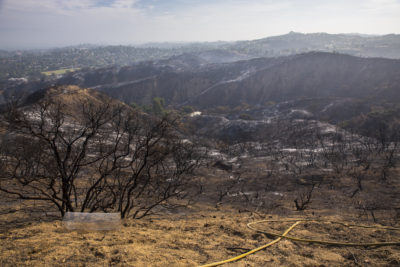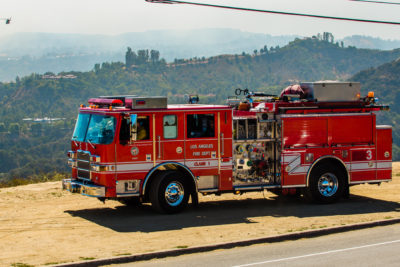The increasing threat of wildfire is Southern California’s new climate reality and it’s impossible to ignore.
Hotter summers and drier winters lead to more events like the Mendocino Complex Fire of 2018 – the largest wildfire in California history that wreaked utter havoc on our state.
And now, with a hot, dry fall season and an upswing of Santa Ana winds, we’re reminded of the need to protect ourselves in a fire season that never ends.

In times like these, it is imperative that residents who live in fire-prone areas stay prepared. Below is our helpful guide so you can have an action plan if your home is threatened by wildfire.
1. Have an emergency supply kit ready to go.
When fire strikes, you might have to evacuate at a moment’s notice. This is why it is important to have an emergency supply kit prepared and located in an easily accessible location. Here are a few essentials your kit should contain:
- Copies of all your important personal documents (Insurance information, identifying information such as birth certificates, deed or lease to your house)
- Three day supply of food and water (plan for 1 gallon of water per person per day, and non-perishable food)
- At least a one-week supply of medications
- First aid kit
- Flashlight
- Radio
- Extra batteries
- Cell phone chargers
- Essential toiletries
- An emergency supply of cash to have on hand for any expenses
- A list of emergency contacts
2. Get to know your evacuation route.
During emergency situations, things can change in a heartbeat. Have at least two exit-routes out of your neighborhood in case of evacuation, as fire can cut off access and cause street closures. Pick a meet-up point that’s outside of the fire danger and have a list of emergency contacts and shelters available in case you need a place to spend the night.
3. Limit your exposure to smoke.
It’s not only people with asthma, chronic diseases and other lung conditions who need to watch out for the threats of smoke when there’s a wildfire. Smoke inhalation can cause serious health problems for even the healthiest of individuals.
Close all windows to slow smoke from entering your home. If you have air conditioning, use the recycled air setting to make sure outside pollution is not sucked into your home. If smoke conditions inside your home are making it hard to breathe, leave the house immediately and seek shelter in an area outside of the fire danger.

Wildfires will always be a stressful and sometimes scary situation but you CAN be prepared to keep your family safe.

